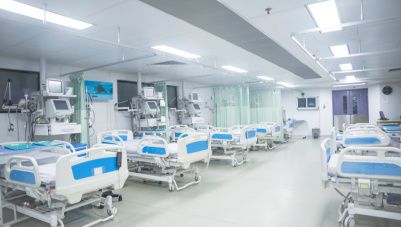Medical practitioners in India often wonder how the Goods and Services Tax (GST) affects their professional services. While many healthcare activities are exempt from GST, certain services, products, or ancillary activities may fall under GST’s purview. This guide explains GST compliance for doctors—including the process, exemptions, and penalties—to help you remain compliant and avoid surprises. Check your doctor loan eligibility if you're planning to expand or digitise your clinic while staying compliant with GST norms.
GST compliance for doctors in India
Doctors must be aware of when their practice becomes subject to GST regulations. Key points include:
- Healthcare services provided by clinical establishments, authorised medical practitioners, or paramedics are generally exempt from GST.
- However, if a doctor provides non-healthcare services (such as consultancy, workshops, or renting out equipment), those may attract GST.
- Selling medicines or medical equipment from one’s clinic can also trigger GST liability.
- If total turnover (including both exempt and taxable supplies) exceeds Rs. 20 lakh (Rs. 10 lakh in special category states), registration is required.
GST compliance process for Doctors
Below are the steps doctors must follow to maintain GST compliance (where applicable):
- Register under GST if required (when turnover exceeds threshold or if providing taxable services)
- Issue proper tax invoices for taxable supplies — these must include items like doctor’s name, address, GSTIN, service description, GST rate, and amount.
- Maintain separate records of exempt and taxable supplies, along with supporting documents.
- File periodic GST returns (such as GSTR‑1 and GSTR‑3B) by due dates.
- Claim Input Tax Credit (ITC) only on goods and services used for taxable supplies (not on exempt services).
Check your pre-approved doctor loan offer to see if you qualify for financial support that can help manage operational costs while staying GST-compliant.
GST exemptions for Doctors in India
Doctors and clinical establishments enjoy certain well-defined exemptions from GST. Some of these are:
- Consultation, diagnosis, treatment, and therapeutic care provided by doctors and clinics in the normal course.
- Diagnostic and pathological tests when done within clinical establishments.
- Ambulance services in the course of providing healthcare.
- AYUSH services (Ayurveda, Yoga, Unani, Siddha, Homoeopathy) by recognized practitioners are also exempt.
Services not exempt under GST for doctors
Not every activity carried out by doctors is exempt. Some services that attract GST include:
- Cosmetic or aesthetic surgery (unless medically necessary)
- Renting out clinic premises or medical equipment
- Selling medicines, implants, or surgical consumables from clinics
Filing GST returns for doctors in India
When doctors must comply under GST, they follow regular return‑filing requirements:
- GSTR‑1: Report outward (taxable) supplies
- GSTR‑3B: Summary of sales, purchases, and tax liabilities
- Ensure that exempt supplies are properly distinguished in the filings
- Late or incorrect filing can lead to penalties and suspension of GST registration
Applicability of the GST regime in healthcare services
| Service type | GST applicability for doctors | Tax rate/Notes |
|---|---|---|
| Consultation, diagnosis, treatment | Exempt | No GST levied |
| Diagnostic/pathology services | Exempt | No GST levied |
| Non‑medical services | Taxable | Standard rates per service |
| Medical equipment/consumables sale | Taxable | 5% – 12% depending on item |
AYUSH sector: Applicability of the GST regime
| AYUSH practice | GST applicability | Rate/Notes |
|---|---|---|
| Ayurveda, Yoga, Unani, Siddha, Homeopathy | Exempt from GST | No GST levied on recognized AYUSH services |
| Unrecognised /Ancillary AYUSH services | Taxable | As per standard GST rates |
Penalties for non-compliance with GST for doctors
| Default/Non‑compliance event | Penalty/Consequence |
|---|---|
| Late filing of GST returns | Penalty per day as prescribed under GST law |
| Failure to register when required | Interest and fines as per statute |
| Incorrect invoice or misleading tax invoicing | Penal provisions under GST law |
| Non-payment or short payment of GST | Interest, demand notices, and legal action |
Conclusion
In summary, doctors in India are generally exempt from GST for clinical services, but certain services, sales, and non‑medical activities may attract GST. To remain compliant, it’s important to follow the correct registration, invoicing, record‑keeping, and return‑filing procedures. Also, consider financial support options like doctor loan interest rates, loans for doctors, or a professional loan to manage capital or equipment investments in your practice.


















